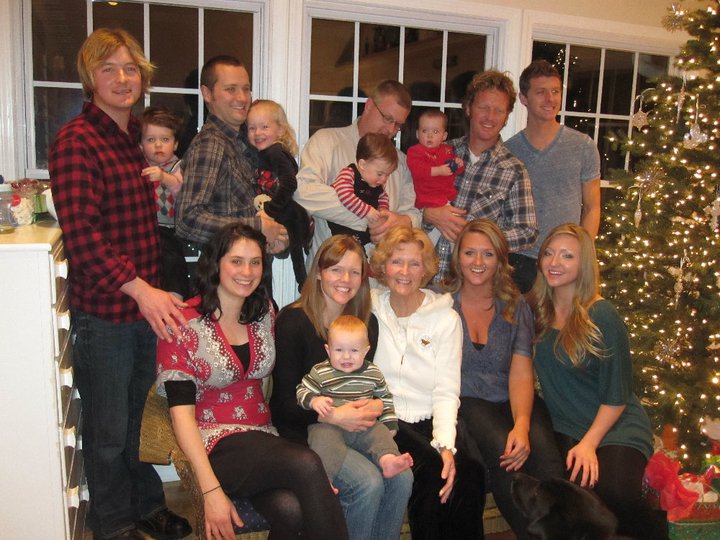 Our little Emerald Louisa has been with us only 3 weeks, but now we can’t imagine life without her. She’s begun to notice her surroundings, which includes our faces, toward which she’ll occasionally flash a grin. Since she’s conservative with her smiles, we continually work to get “just one more.”
Our little Emerald Louisa has been with us only 3 weeks, but now we can’t imagine life without her. She’s begun to notice her surroundings, which includes our faces, toward which she’ll occasionally flash a grin. Since she’s conservative with her smiles, we continually work to get “just one more.”
Part of the joy of having a newborn around is discovering who it is inside that tiny body. Amazingly, she already has her own opinions, and she’s gradually letting us know what they are. For example, during a fussy moment, she likes our singing. She also has a preference for the vibrating infant seat over the movement of her swing. She likes looking in a mirror at herself and loves stroller walks in the brisk night air from a cozy snowsuit. She prefers to be warm but doesn’t like to get undressed even if there’s a warm bath at the other end of it.
All of these opinions can be defined as Emerald already having a will of her own. Child care experts say the discovery of this self-will is what makes two year olds have tantrums. They’re simply realizing they’re a separate entity from everyone else. In my opinion, children learn that much earlier than two. Say, by 3 weeks.
But even though a child’s self-will oftentimes goes head-to-head with an adult’s, we can’t deny God has done something marvelous in the creation of a baby. And giving each of them a will of their own was a risky idea on his part. It would have been no risk to pre-program them as continually cooperative without any ability to buck the authorities.
Instead God lets babies make choices right from birth. Actually, ultrasound pictures show us they’re demonstrating their opinions even in the womb.
Why would God give self-will to such tiny little people? Or, for that matter, to us big ones? Probably because he wanted to see what we would do with them, especially where he’s concerned. As it is, each of us has a daily chance to love him or leave him.
We parents understand that reasoning. When children are in middle school, we take a small step back to watch what choices they’ll make. If they choose badly, we step forward again to rescue, discipline, or rearrange circumstances that will train them further.
A while later, we step back again, and then again, hoping they’ll make the right choices just as God hopes about us. Eventually, in both the parental case and in God’s case, final decisions are up to the individual. Parents should no longer insist their adult children do things one way over another, and God operates the same way.
So, at our house we continue to learn what little Emerald really thinks as she makes her likes and dislikes known. Her opinions will become more and more important as she grows, and we’ll be praying she’ll make wise choices. If she’s anything like the rest of us, though, she can look forward to some big-time adjusting.
Peter replied, “I see very clearly that God shows no favoritism.” (Acts 10:34)







